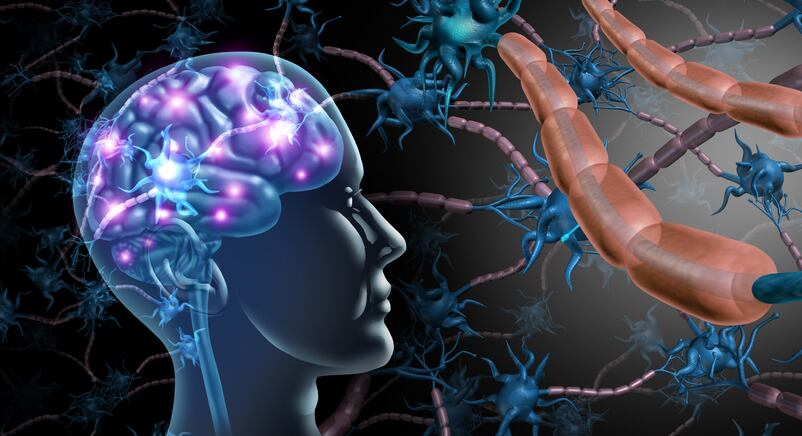In addition, the 14-strain supplement significantly improved scores for symptoms related to anxiety in one of two assessments utilised, when compared with the placebo group.
“To our knowledge, this is the first trial in a Western population to demonstrate the safety, acceptability, and therapeutic potential of a readily available and scalable probiotic intervention in patients with MDD,” the ADM Protexin funded study stresses.
Professor James Stone, the study’s senior investigator from Brighton and Sussex Medical School, emphasised: “Non- or partial response to antidepressants is a huge problem and this study is an important first step in exploring the therapeutic potential of probiotics as a treatment for depression.
“We found that probiotics were an acceptable and tolerable supplement in people already taking antidepressant medications. This now paves the way for studies looking at whether we see these beneficial effects of probiotics on depression and anxiety in larger populations of patients,” he adds.
Depression treatment
There has been an increasing prevalence of those suffering with mental health conditions. Yet, it has been noted that 60% of those suffering from MDD do not respond to first line treatments to some extent.
Following this, there has been a significant interest in the use of natural alternatives for such conditions. There is a wealth of evidence highlighting the involvement of the gut-brain axis in the pathophysiology of MDD, suggesting the potential for microbiome-targeted treatments.
Recent studies have emphasised the effectiveness of a probiotic intervention in reducing depressive symptoms when combined with antidepressants, yet the evidence in this field is still limited to enable for conclusions on safety and efficacy of its usage.
Thus, the present RCT sought to advance this research by investigating the efficacy of a probiotic intervention in those suffering with MDD who were currently taking antidepressant medication without a complete response.
Study
The researchers recruited 49 adults aged 18-55 years from primary and secondary care services in London. Subjects were either administered a daily dose of four capsules containing a multi-strain probiotic (8 billion CFUs / day) or a placebo over a period of 8-weeks. The Bio-Kult Advanced probiotic, developed ADM protexin, contained 14 bacterial strains including Bacillus, Bifidobacterium, Lactobacillus, Lactococcus and Streptococcus species.
Measures for clinical symptoms of depression were obtained using the Hamilton Depression Rating Scale (HAMD-17) and inventory of Depressive Symptomatology (IDS) scores, whilst anxiety scores were measured using the Hamilton Anxiety Rating Scale (HAMA) and scores of General Anxiety Disorder GAD-7).
Following analysis to obtain standardised effect sizes (SES) utilising mixed linear models, it was noted that those treated with the probiotic had a greater improvement in depressive symptoms in both related tests, when compared with the placebo group.
In addition, there was a significant reduction in anxious symptoms according to the HAMA scores, but not the GAD-7 scores, in those administered the probiotic.
Significance
“Compared with the placebo group, the probiotic group exhibited greater improvement in depressive symptoms with moderate effect sizes, which are comparable with those reported in earlier meta-analyses. Participants in the probiotic arm experienced, on average, a reduction of 1 severity grade on both depression rating scales,” the report summarises.
The significance of the findings in terms of acceptability, tolerability and effect size of the probiotic treatment will contribute to the advancement of this area of research and encourage further study utilising larger sample sizes.
Dr Richard Day, VO of medical affairs at ADM emphasises: “This trial is one of the few clinical studies to assess the benefits of supplementing the diet with probiotics alongside standard of care antidepressant medication. These exciting results add to our understanding of the link between the gut microbiome and mental health.”
Source: Jama Psychiatry
doi:10.1001/jamapsychiatry.2023.1817
“Acceptability, Tolerability, and Estimates of Putative Treatment Effects of Probiotics as Adjunctive Treatment in Patients With Depression”
Viktoriya L. Nikolova, Anthony J. Cleare, MBBS, Allan H. Young, MD, PhD1, et al

